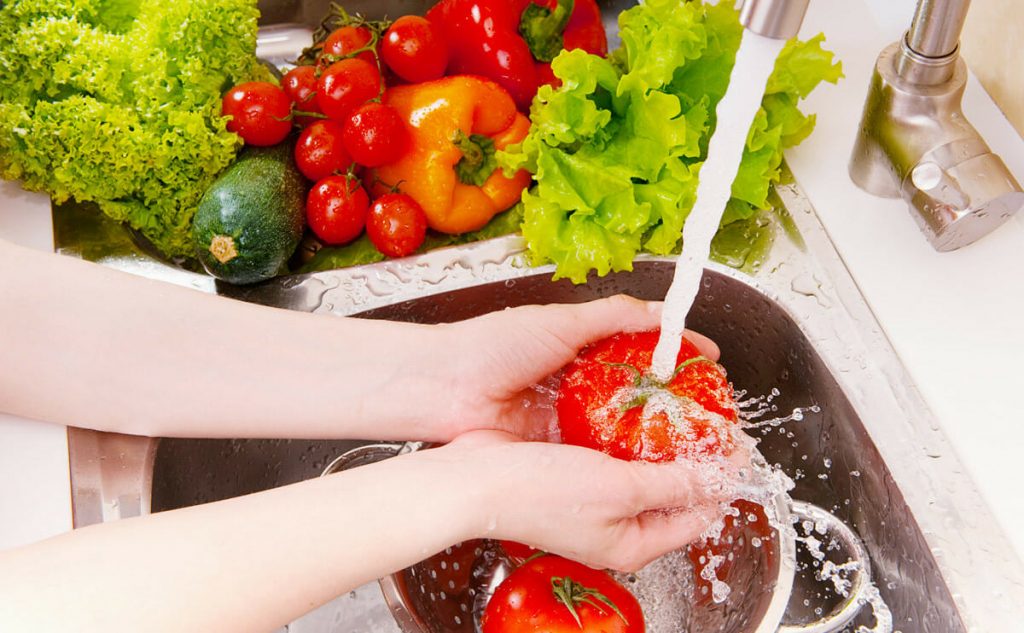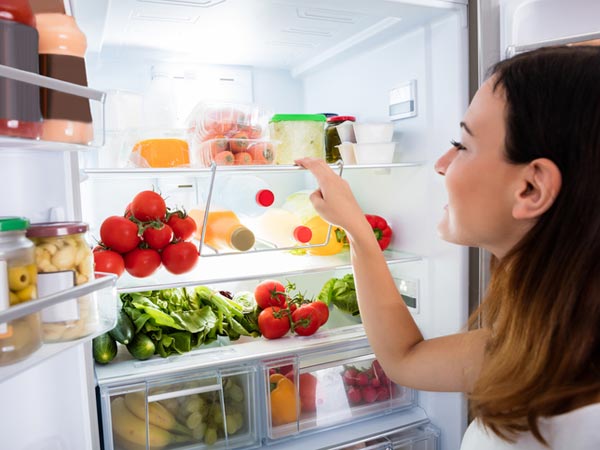Many types of food need to be stored in the refrigerator to maintain freshness and last longer. However, storing food in the refrigerator should not be done carelessly. Storing food in the refrigerator also has its rules, let’s look at the following article so that you understand Kitchen storage ideas properly.
How to Store Food in the Fridge
1 piece
Putting washed fruit in the refrigerator will speed up spoilage.
– Fruits do not require high humidity. Therefore, avoid washing the fruit before putting it in the refrigerator, because it can damage and rot easily. It is best to place the fruit on an open shelf.
– Certain fruits, such as bananas, avocados, melons and oranges, don’t last long in the refrigerator. Simply store these fruits at room temperature or in the open air.
For fruit that is still fresh, it can be stored in the refrigerator for 1 to 2 weeks. As for the fruit that has been peeled can be stored for only 3-4 days.
– Especially for this fruit, separate it from other fruit because apples emit certain gases that cause fruit or vegetables to rot quickly.
– Store apples separately from other ripe fruits. On the other hand, you can place apples close to fruits that are not too ripe so that they ripen quickly.
– So that the taste and texture of the apples do not change, you can store the apples by wrapping them in perforated plastic before placing them in the refrigerator.
2. Vegetables

In contrast to fruit, vegetables require higher humidity and spoil faster than fruit.
– Wash vegetables thoroughly to prevent bacteria that cause wilting and yellowing. Wait for it to dry before placing it in a perforated plastic bag or wrapping it in paper. Especially for mushrooms, they must be wrapped in paper because they are easy to sweat and rot quickly when wrapped in plastic.
– Keep away from fruits and onions and garlic to avoid gases that cause yellowing.
– Place it on a special vegetable shelf or drawer. Vegetables can be stored 2-3 days in the refrigerator.
3. EGGS
Save the eggs by putting the small end at the bottom so they don’t go bad.
– Wash the eggs to remove dirt and then wipe dry.
– Store in the egg holder provided in the refrigerator, placing the small end at the bottom. This will ensure that the air pocket above is not compressed by the weight of the egg so it won’t break and rot.
– Eggs can be stored in the refrigerator for 3-5 weeks.
4. MEAT
Make sure fresh meat, fish and poultry remain in their plastic wrap or use placemats if unwrapped. Removing the packaging can increase the risk of exposure to bacteria.
5. Dairy Products
Dairy products should be refrigerated. Especially for this product, packaging is very important.
– To store milk, it is better to use a plastic bottle as a wrapper instead of a cardboard box. Bacteria are easier to grow in cardboard boxes than plastic bottles. If the milk carton has been opened, the milk should be consumed within 7-10 days.
– Keep cheese, yogurt, sour cream, milk and cream in the packaging. If it has been consumed, do not return it to its original container. Place in a bowl or plate with plastic wrap.
– Especially for cheese, use aluminum foil if it has been consumed. Hard cheeses like cheddar can last for 3-4 weeks after opening. Meanwhile, soft cheeses like ricotta can last up to a week after opening.
6. Potato
Potatoes serve to absorb bad odors from foodstuffs or processed foods that are put in the refrigerator.
– Actually, potatoes are not good to store in the refrigerator because the starch will turn into sugar. Place in a dark, cool place away from onions. If there is sprout growth, it should be removed immediately.
– To absorb bad smells from food or food that has been processed and put in the refrigerator, randomly place the potato halves in several places in the refrigerator. The halves are simply replaced every three days with fresh ones.
